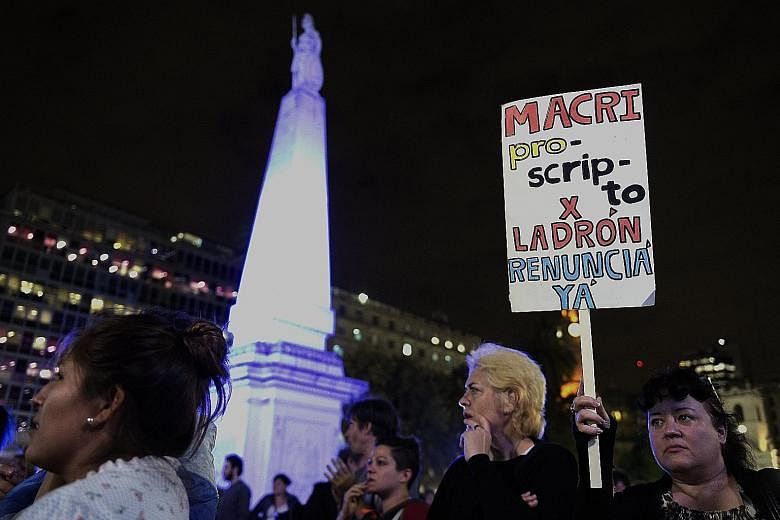WASHINGTON • From Russia to China, and Britain to Iceland, the revelations in the "Panama Papers" have tarnished the powerful and the wealthy with the implication that they hide riches offshore.
But one group is not there: prominent Americans. US tycoons and politicians are notably absent in the leaked files of the Panama law offices of Mossack Fonseca, which created thousands of shell companies worldwide to hide the identities of their ultimate owners, some of whom may have been evading taxes or hiding their wealth for a variety of reasons.
While the Panama Papers detail complex financial arrangements benefiting the world's elite, they do not necessarily mean the schemes were all illegal.
There is Hollywood mogul David Geffen, the Asylum Records and Dreamworks SKG co-founder. But there are no Americans comparable to Iceland's prime minister or people closely linked to the Russian president - all in the Panama records - at least in what has been disclosed so far.
"There are a lot of Americans, but they are more like private citizens," said Ms Marina Walker Guevara, deputy director of the International Consortium of Investigative Journalists, which coordinated the investigation and release of the Panama Papers.
However, that hardly means Americans have fully embraced financial transparency, she told Agence France-Presse.
"It doesn't show that the US is outside of the offshore system; the US is actually a big player," she said.
One possible reason for their small presence in the Panama documents is that US citizens hoping to hide funds and activities offshore were not drawn to Spanish-speaking Panama as a haven when there were options like the British Virgin Islands and the Cayman Islands.
"Americans have so many tax havens to choose from," said Mr Nicholas Shaxson, author of Treasure Islands: Tax Havens And The Men Who Stole The World, a 2011 book on secretive centres for hiding money. Indeed, Americans do not have to go abroad to hide funds and activities behind anonymous corporations: they can create them at home.
States such as Delaware and Wyoming allow the creation of such companies, for just a few hundred dollars, that conceal their ultimate financial beneficiary.
And while US banks are normally required to "know their customers", they can bypass that rule and open accounts for shell companies, ensuring total discretion for someone who wants to move money around quietly. The US is third in the Tax Justice Network's ranking of the world's least transparent countries, well above Panama.
The Treasury is moving to plug the loophole. "We're in the last stages of drafting the final rule," a Treasury official said.
There is another possible reason that Americans are not so visible in the Panama Papers.
Spurred by the need to halt blatant tax evasion by Americans using foreign banks, Washington in recent years has cracked down with lawsuits, arrests and tighter laws that have targeted both the banks offering safe haven and those hiding money in them. Swiss banks were hit in particular.
The result, Mr Shaxson said, is that now "there are a few tax havens around the world that are very frightened of American clients, because they know that the US can hit them".
AGENCE FRANCE-PRESSE

